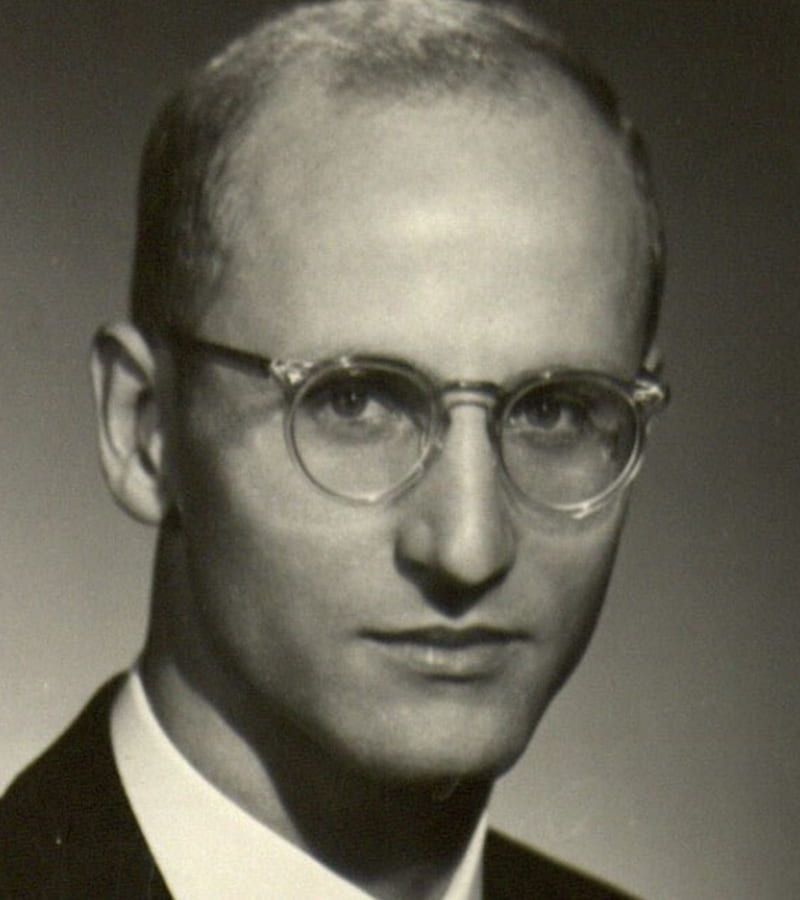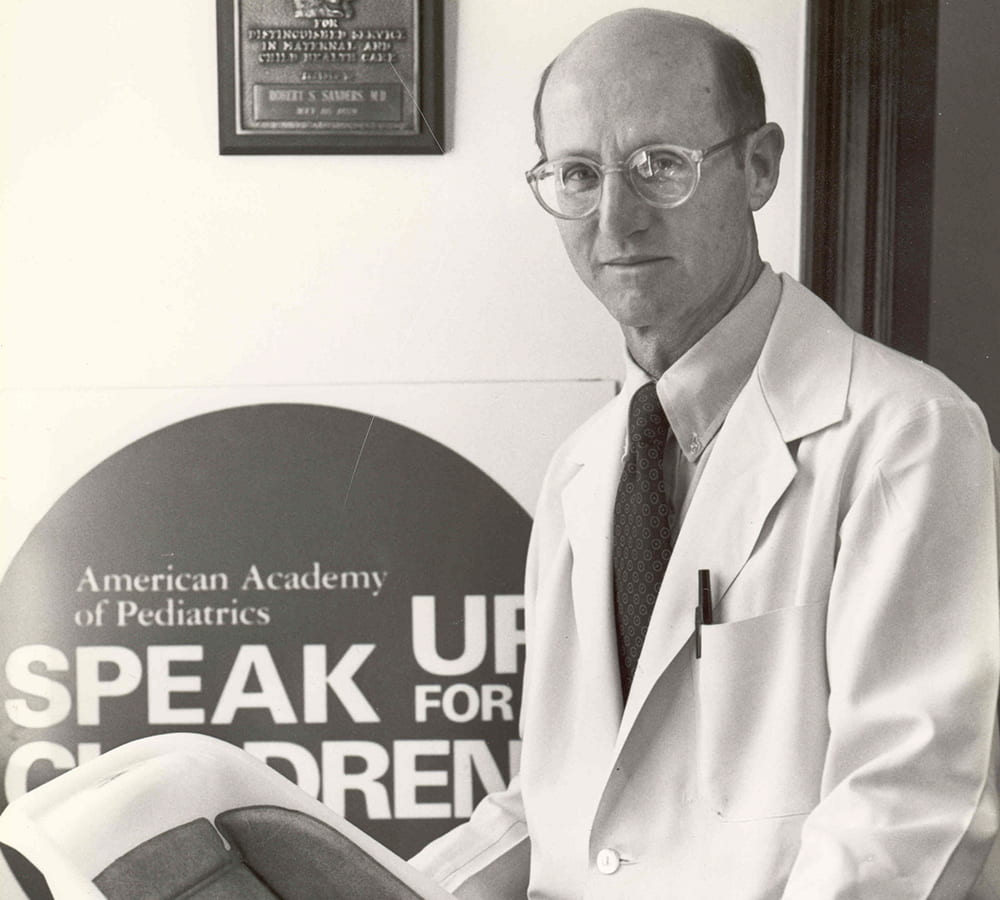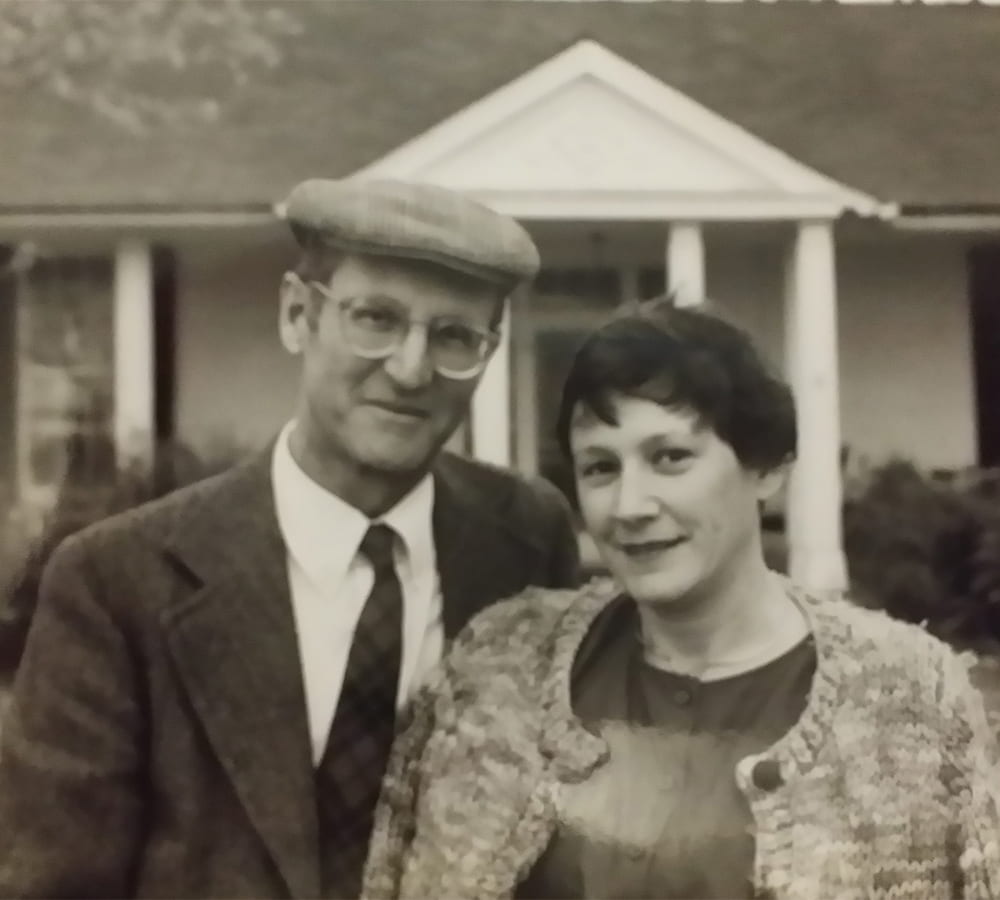Robert Sanders, M.D.

Dr. Robert Sanders was born in 1927 in Tullahoma, Tennessee. After enlisting in the Army and serving 18 months as a surveyor, he went on to earn a bachelor’s degree in chemistry from Vanderbilt University. The G.I. Bill helped Sanders pay for his undergraduate education and medical school at Vanderbilt. After completing a pediatrics internship, he pursued a residency program at the University of California at San Francisco before returning to Vanderbilt as chief resident. He went on to complete a medical fellowship in Sweden where he studied newborn physiology.
In 1963, Sanders began a solo pediatric practice in Murfreesboro and later joined the Tennessee Department of Public Health. Sanders became an active member of the Tennessee Chapter of the American Academy of Pediatrics and eventually served as chairman of the Accident Prevention Committee.
Through this political role, Sanders was part of a team that successfully lobbied for the passage of the Child Passenger Protection Act, a Tennessee law that requires parents to properly restrain children under age four in federally approved car seats. In 1977 it was the first law of its kind in the nation and world. Three years later, Rhode Island passed a similar law and by 1985 all 50 states in the U.S. had passed related laws. After that, Sanders worked to create a mandatory seat belt requirement for older children and adults, which became Tennessee law in 1986. This accomplishment led to Sanders becoming proudly known as “Dr. Seat Belt.” He later received the 2004 American Academy of Pediatrics Fellow Achievement Award for his work.
As director of the Rutherford County Health Department, Sanders was also involved in several educational programs focused on sex education, gun control and the prevention of teen smoking. In 1995, the Rutherford County Health Department Clinic was named “The Robert Smith Sanders Public Health Clinic” in his honor.
Throughout his notable career, Sanders was a tireless champion for the health and well-being of Tennesseans, particularly young children. Some of his numerous accolades include the Ross Award for Distinguished Service in Maternal and Child Health Care from the American Public Health Association (1978), Tennessee “Pediatrician of the Year” (1991) and the Distinguished Career Award from the American Public Health Association (2003) “in recognition of outstanding dedication and leadership in injury control and emergency health services with contributions and achievement that have a significant and long-term impact.”


